
Did you know that burst pipes account for around 37% of all emergency plumbing calls in the UK? As the temperature drops and frost sets in, homes across the country become more vulnerable to leaks, frozen pipes and heating breakdowns. A plumbing emergency can strike at any moment, but the winter months are when things usually go wrong. Water expands as it freezes, so even a small section of frozen pipe can cause huge damage once it thaws and bursts.
Thankfully, a little seasonal care goes a long way. By understanding how each season affects your plumbing, you can take simple steps to protect your system, avoid costly repairs and make sure your boiler keeps you warm when it is cold outside. This guide breaks down practical, easy-to-follow tips for every season of the year so you can keep your home running smoothly no matter the weather.
Spring: Check for Damage After the Cold
After a long, harsh winter, your plumbing system deserves some attention. Spring is the best time to inspect for any damage that might have been caused by freezing temperatures or general wear and tear. Even if everything seems fine, it is worth checking pipes, joints and fittings for cracks or leaks, especially in places that are unheated or exposed, such as lofts, garages and under sinks.
Outdoor taps and garden hoses should be checked too. Freezing water can expand and cause small splits that only become obvious when you turn the tap back on. Replacing damaged fittings now prevents leaks later when you start watering the garden again. It is also a smart time to clear out gutters, drains and downpipes that may have filled up with leaves, moss or debris over winter.
Another good spring habit is to test your stopcock or main shut-off valve. Make sure it turns easily. If it is stiff, apply a little lubricant. You do not want to discover it is jammed during a real plumbing emergency. By spending a bit of time on these small checks, you will spot problems early and save yourself money and stress later in the year.
Summer: Stay on Top of Water Use
The warmer months can be busy ones for your plumbing system. From outdoor activities to family gatherings, there is usually a lot more water being used. More showers, more laundry and more dishes all put extra pressure on your pipes and drains. During the summer, try to stay mindful of what goes down your sinks. Pouring oil, fat or leftover food into the drain might seem harmless at the time, but these substances solidify as they cool, building up blockages that cause nasty smells or slow drainage later on.
If you have sprinklers or an irrigation system, check them regularly for leaks or drips. Even a small leak can waste hundreds of litres of water over the course of the season. Fixing them early will save both water and money. Also, take a moment to inspect the outdoor taps you repaired in spring to make sure they are still in good condition.
Summer is also holiday season. Before heading away, turn off your main water supply. A leak while you are not home can cause a huge emergency by the time you return. If you have a modern boiler, you can usually set it to a holiday mode or turn the temperature down to prevent unnecessary heating while still protecting the system from stagnation.
Autumn: Prepare for the Cold
As autumn arrives, it is time to get serious about cold weather preparation. The nights grow longer, the temperature drops and the risk of frozen pipes increases. Start by insulating any exposed pipework, particularly in areas like lofts, basements, garages and outdoor walls. Foam insulation sleeves are inexpensive and easy to fit, yet they can save you a fortune by preventing frozen and burst pipes.
Next, book your annual boiler service. A qualified heating engineer can make sure everything is working efficiently and safely. Servicing your boiler in autumn means you will not be caught out by a breakdown when the first really cold week arrives. During the check, they will inspect the burner, clean vital components and test gas pressure and flues to make sure your system is safe.
It is also wise to flush out your water heater or cylinder to remove sediment that collects over time. Sediment makes your system less efficient, using more energy to heat the same amount of water. Before the first frost, disconnect garden hoses and shut off outdoor water supplies. Any remaining water in those pipes could freeze and expand, causing splits that lead to flooding. By taking these precautions in autumn, you will be ready for whatever winter brings.
Winter: Prevent Burst Pipes and Boiler Breakdowns
Winter is when most plumbing emergencies happen. The freezing conditions can quickly turn a small issue into a disaster if you are not prepared. To reduce the risk, keep your heating on a low but consistent setting, even when you are out or away for a few days. This prevents pipes from freezing solid, especially in unheated areas. During particularly cold spells, allow your taps to drip slightly overnight to keep water moving through the pipes. Moving water is less likely to freeze.
Make sure you know where your stopcock or main shut-off valve is located and that it is easy to reach. If a pipe bursts, turning off the water quickly can make the difference between a small puddle and major water damage. Check your boiler pressure regularly too. If the pressure is too low, the heating may cut out. Keep an eye on warning lights and unusual noises as they are early signs that your boiler might need attention.
If you do find yourself in a plumbing emergency, stay calm. Turn off the main water supply straight away and switch off your boiler. Open your taps to drain excess water and then call a professional plumber. A trusted engineer, such as SAS Gas Services, will be able to repair the problem safely and efficiently, getting your heating and hot water back up and running.
Year-Round Plumbing Habits That Prevent Emergencies
Avoiding a plumbing emergency is not just about reacting when something breaks. It is about looking after your system regularly so problems never have the chance to grow. Start by turning your shut-off valves every few months to stop them from seizing up. Check your water pressure with a simple gauge. The ideal range for most homes is between 40 and 60 PSI. High pressure might make showers feel great, but it also puts strain on pipes, joints and appliances.
Repair dripping taps, leaking showerheads and slow-running toilets as soon as you notice them. These small issues not only waste water but can also point to worn seals or valves that could fail entirely later on. Make sure everyone in your household knows what can and cannot go down the drains. Only toilet paper should be flushed, and sinks should never be used to dispose of grease or leftover food.
It is also worth booking an annual plumbing inspection. A professional plumber can check for hidden leaks, test your stopcock and inspect key areas like under sinks, behind toilets and around radiators. These checks cost far less than dealing with an emergency repair in the middle of winter. Simple, steady maintenance keeps your home safe, helps your plumbing last longer and saves you money in the long run.
Preventing a Plumbing Emergency This Winter
In conclusion, preventing a plumbing emergency is all about taking small, steady steps throughout the year. Regular inspections, seasonal checks and keeping your boiler serviced will all help protect your home through the colder months. By insulating pipes before winter, checking water pressure and fixing minor leaks straight away, you can save yourself from serious damage and expensive repairs.
Prevention is always cheaper and less stressful than fixing a burst pipe or broken boiler in the middle of winter. If you do need help, contact SAS Gas Services today for reliable, professional plumbing support that keeps your home warm, safe and running smoothly all year round.
FAQs
Find answers to your most pressing questions about plumbing and heating services.
Your boiler works much harder during winter as it runs constantly to heat your home and water. The condensate pipe can freeze, which causes the boiler to stop working. Regular servicing before the colder months can help prevent this and keep everything running smoothly.
Keep your heating on low, insulate exposed pipes and let taps drip slightly during very cold weather. If you are away for a few days, open cupboard doors to let warm air circulate around the pipes.
Yes. Annual servicing keeps your combi boiler efficient and safe, reducing the chance of breakdowns in the colder months. It also helps maintain your warranty and spot small faults before they turn into bigger problems.
If the pipe has not burst, turn off the water and gently warm it using a hairdryer or hot towels, starting from the tap end. Never use an open flame. If it has burst, it is a plumbing emergency. Turn off your main valve and call a professional plumber immediately.
A well-maintained gas boiler should last between 10 and 15 years. Regular servicing, cleaning and safety checks will extend its lifespan and reduce the risk of sudden breakdowns in the middle of winter.
Still have questions?
We're here to help you with any inquiries.
Looking for Help
with your Plumbing?
Contact us now
Explore Our Other Insights
Stay updated with our plumbing and heating tips.

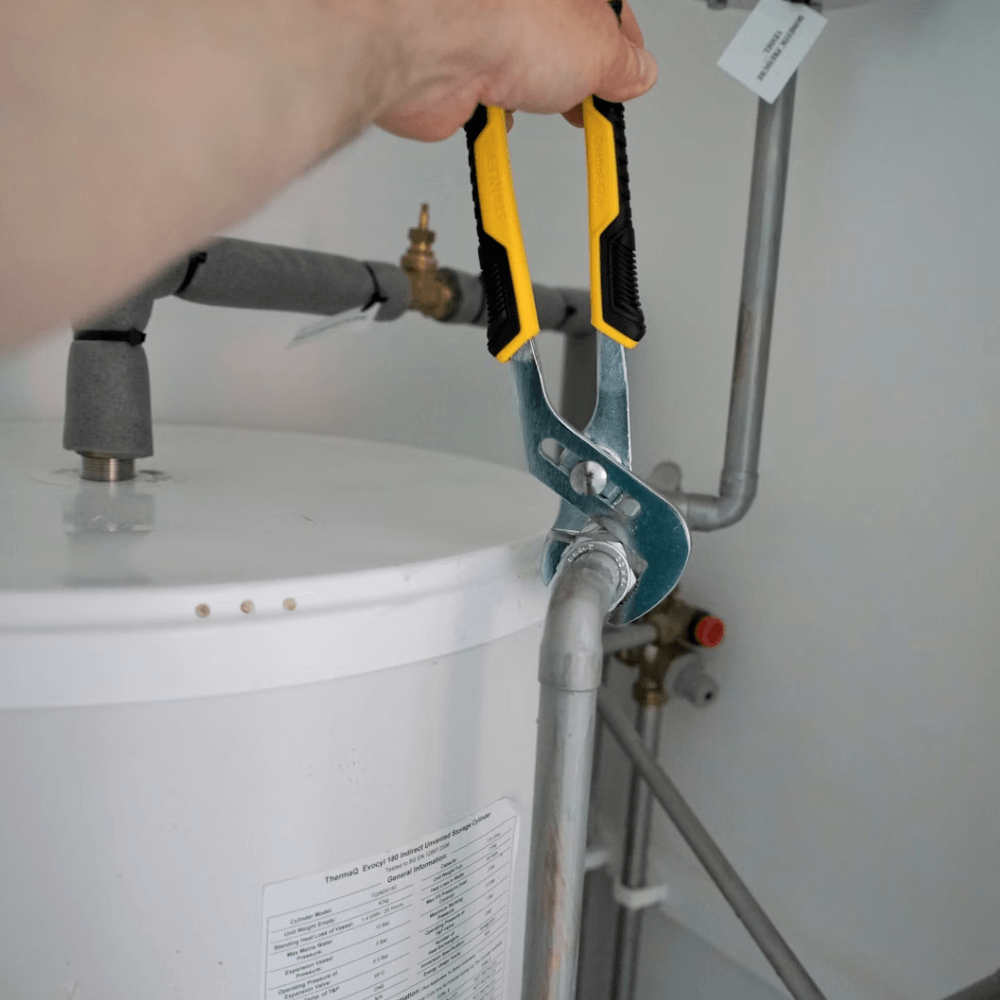
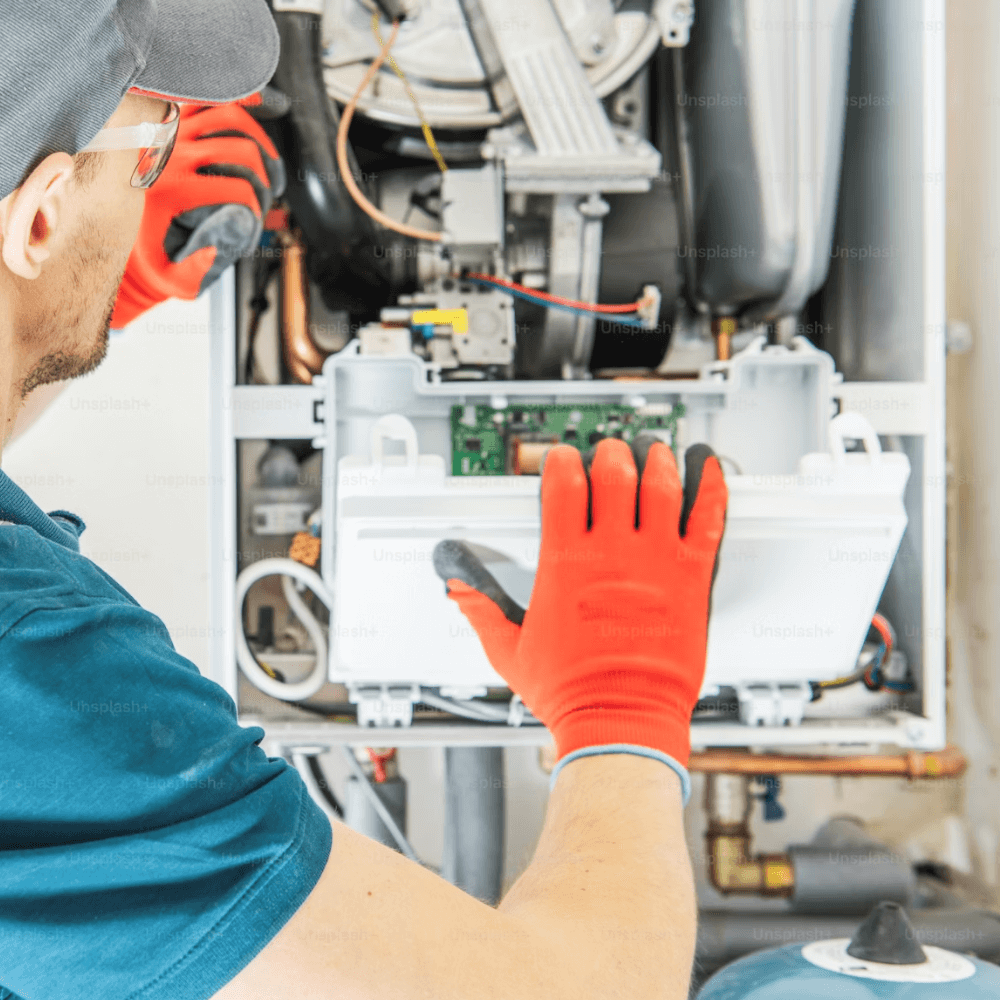
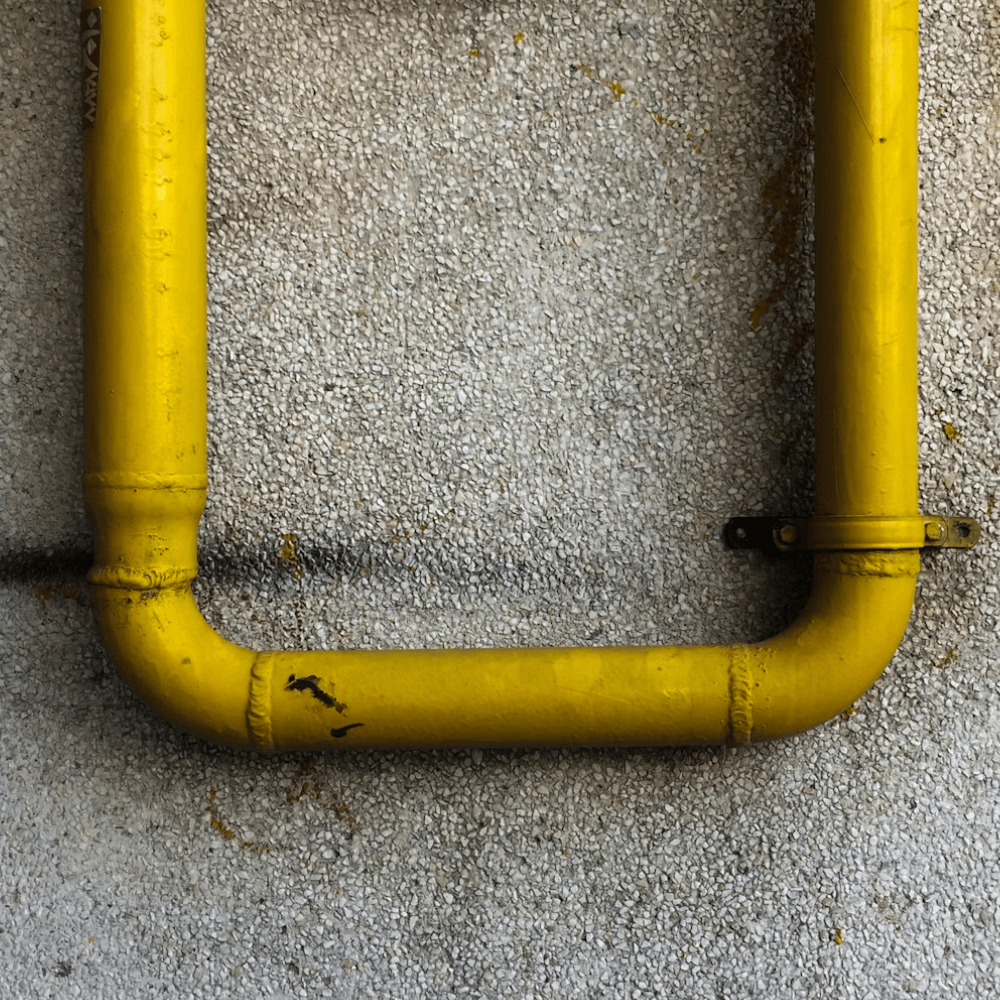
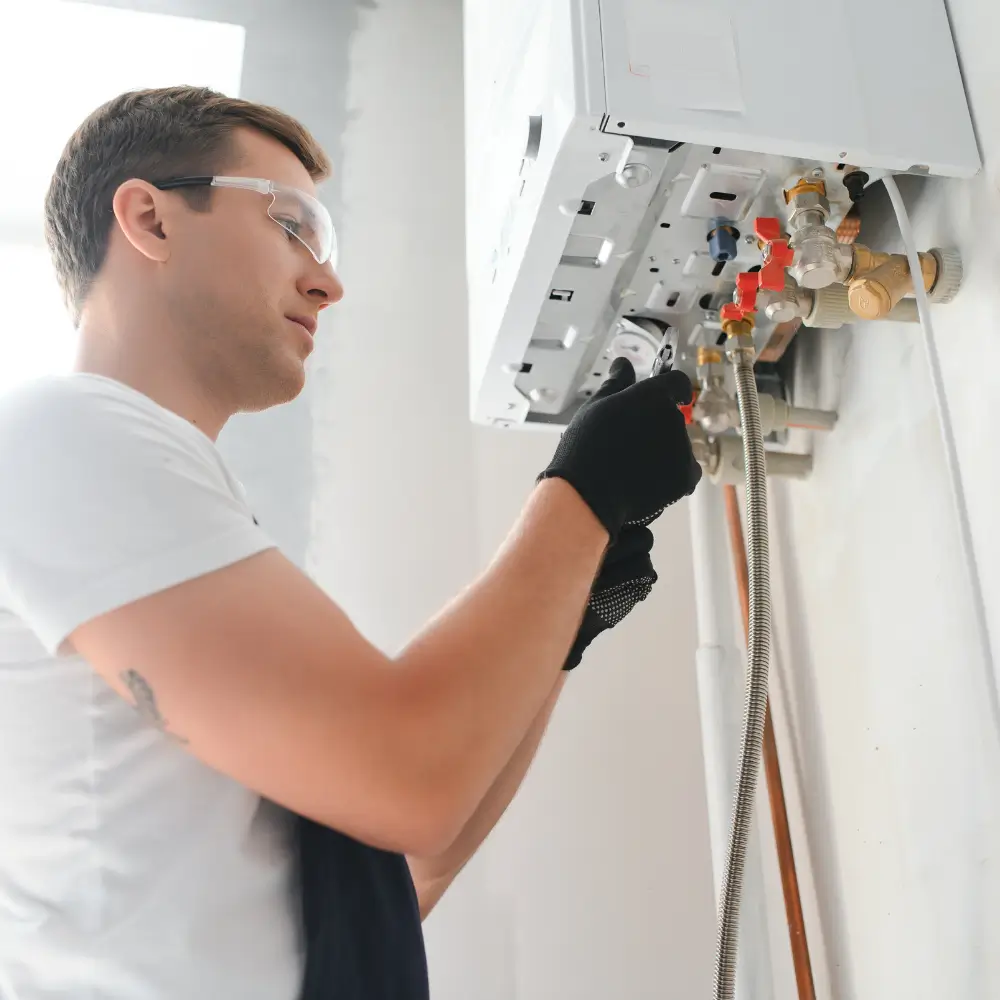
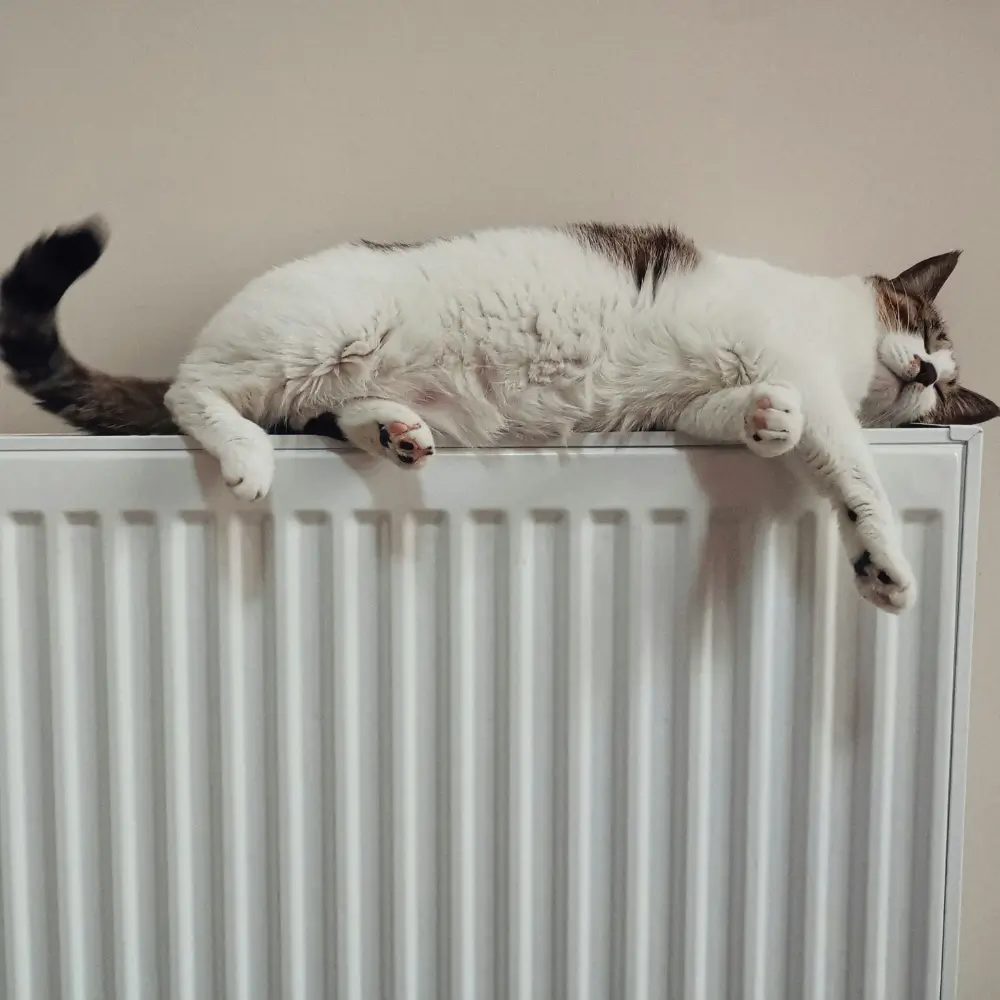
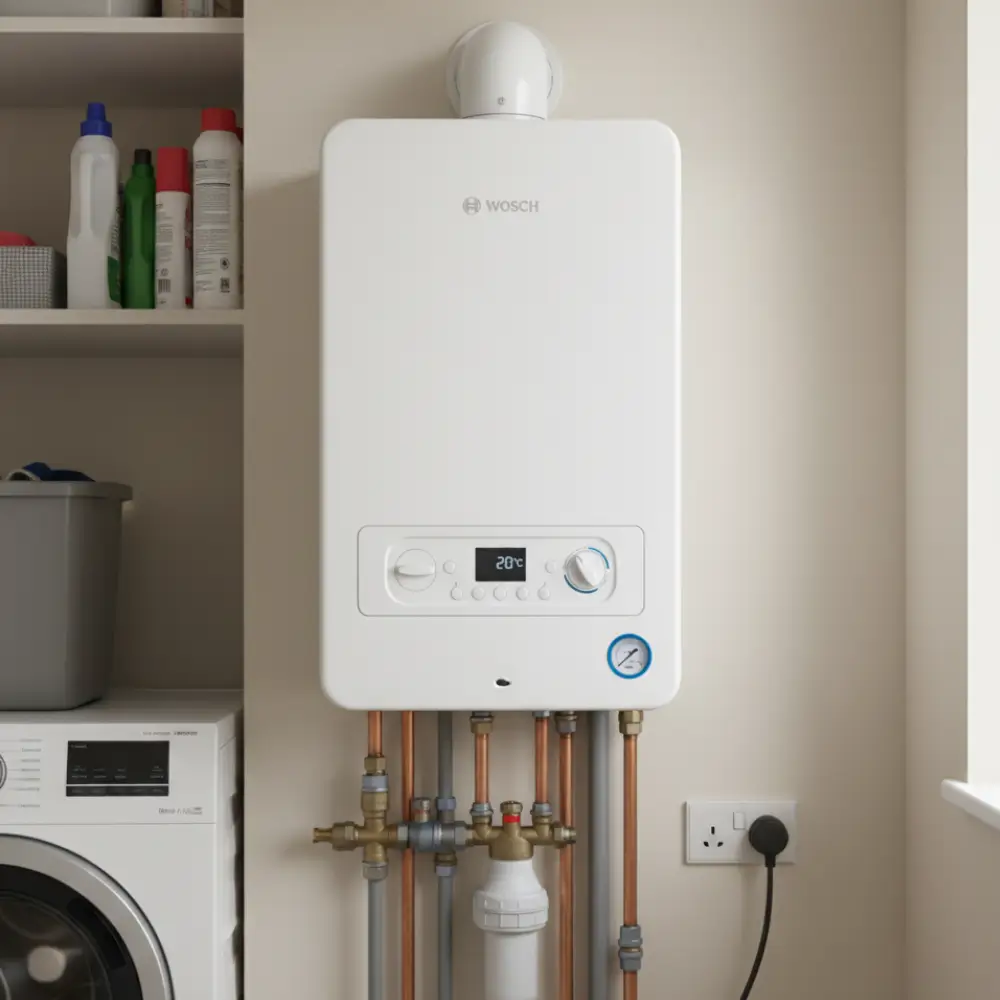
.webp)
.webp)
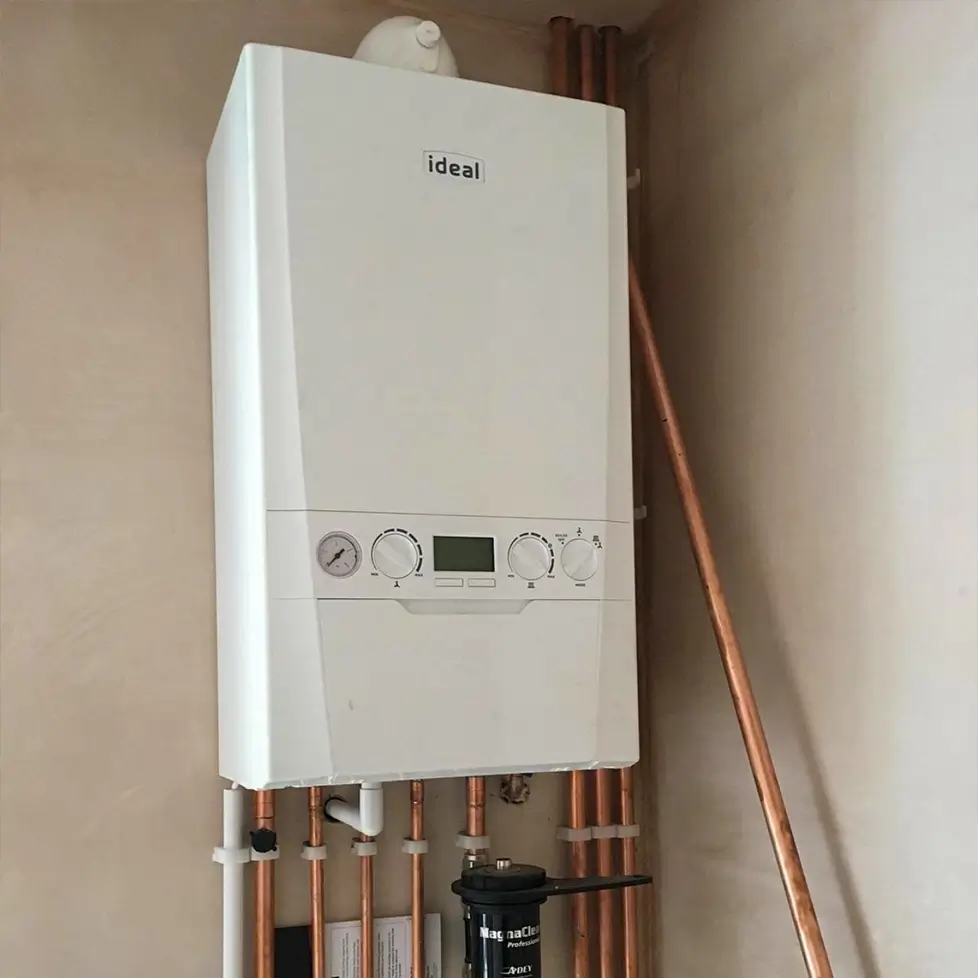
.webp)

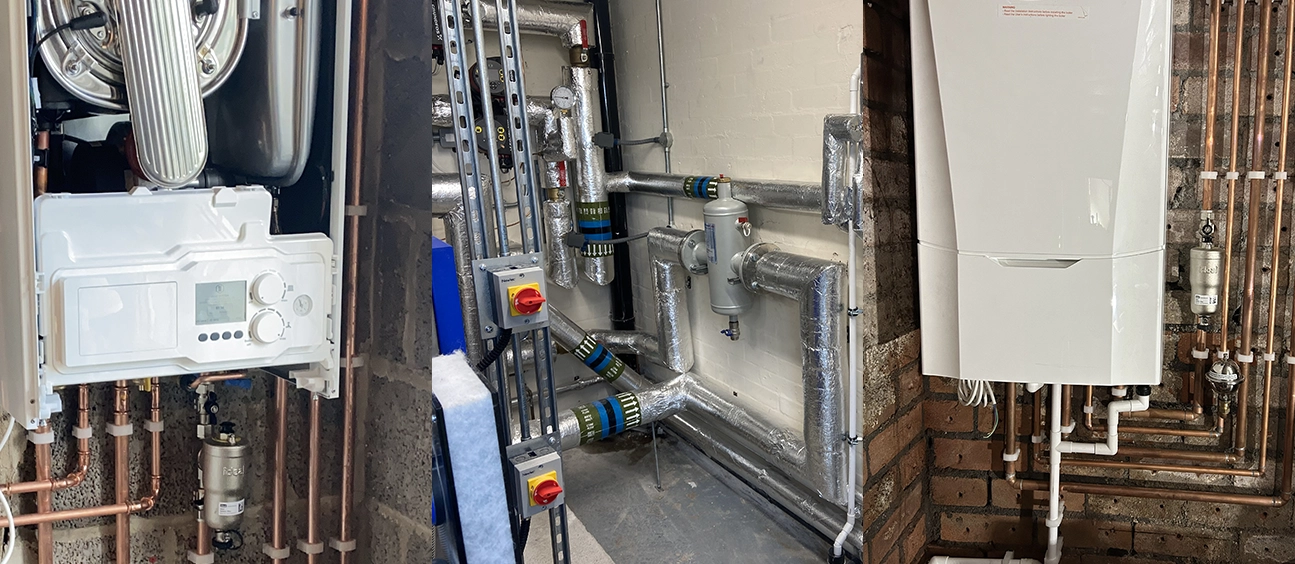
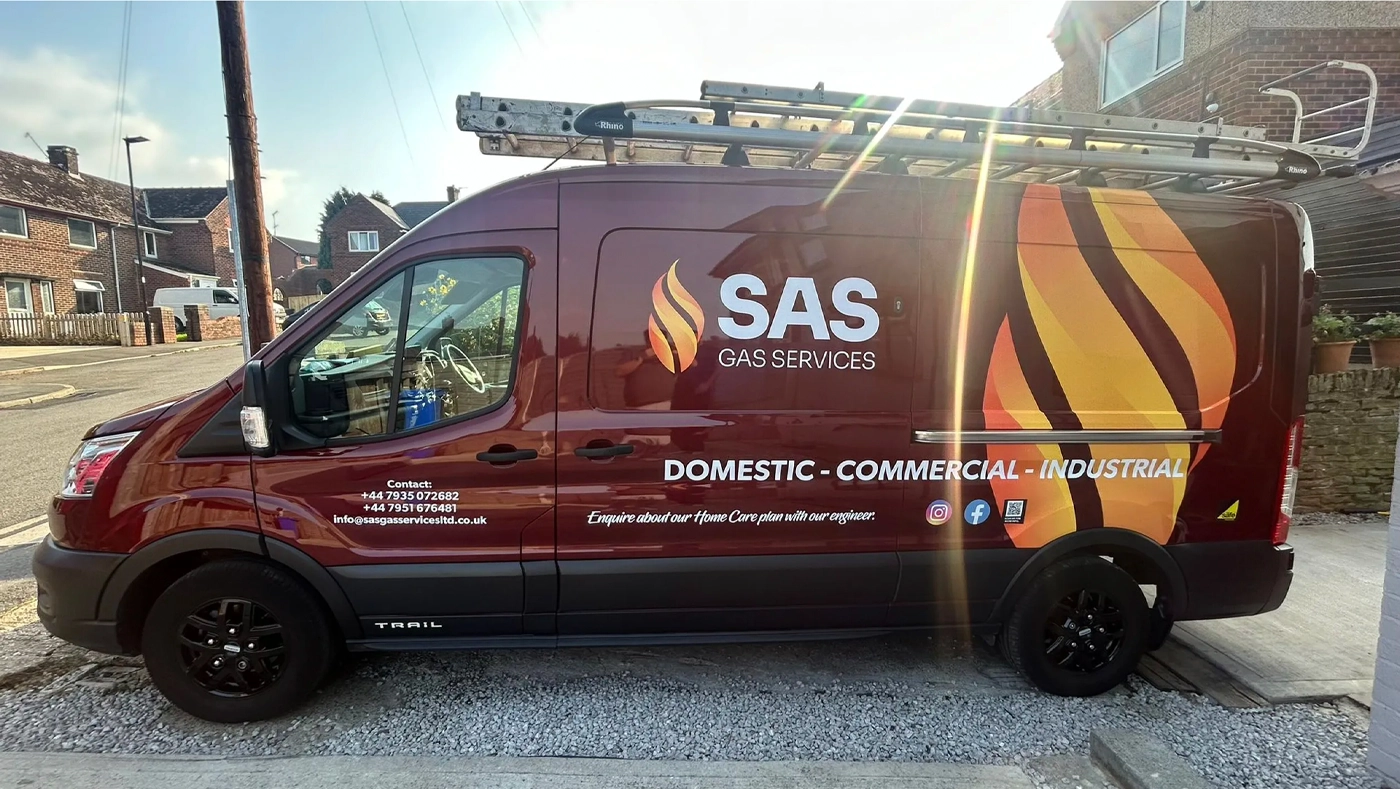
.webp)

